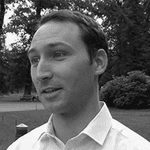Event Recording:
The combustion of fossil fuels is responsible for the most greenhouse gas emissions, particularly in industrialised countries.
Systemic change in energy systems is therefore a critical component of any net-zero agenda. It is a huge global challenge, but recent developments give cause for optimism that a Green Industrial Revolution is possible.
Join Professor Nick Eyre, Lead Researcher, Oxford Martin Programme on Integrating Renewable Energy, where he will discuss with Dr Steve Smith, Executive Director of Oxford Net Zero, how the declining costs of renewable electricity mean they can provide cheap mitigation, as well as enabling major improvements in energy efficiency, so that the total amount of energy that will need to be decarbonised is much lower than often projected.

Professor Nick Eyre
Lead Researcher, Oxford Martin Programme on Integrating Renewable Energy
Nick Eyre is Director of the UKRI-funded Centre for Research into Energy Demand Solutions, CREDS. He is Professor of Energy and Climate Policy in the Environmental Change Institute of the University of Oxford and a Co-Director of the Oxford Martin Programme on Integrating Renewable Energy.
From 2007 to 2017, he was a Director of the UK Energy Research Centre, and before that Director of Strategy at the Energy Saving Trust. Since October 2020, he is scientific advisor on climate change to Oxford City Council.

Dr Steve Smith
Executive Director, Oxford Net Zero
Dr Steve Smith joins the Smith School of Enterprise and the Environment from the UK Department for Business, Energy and Industrial Strategy (BEIS) where he co-led the Climate Science Team for two years. He played a key role in the legislation of the Net Zero emissions target last year, and on developing the Government's approach to greenhouse gas removal. As well as advising ministers and policy teams he oversaw several areas of climate research, including the Met Office Hadley Centre Climate Programme, the Greenhouse Gas Removal Programme co-funded with UKRI, and understanding of carbon sources and sinks on land for the UK emissions inventory.
Before joining BEIS, Steve was Head of Science at the Committee on Climate Change. There he was involved in setting the UK's 2050 target and carbon budgets, as well as starting up the committee's work on climate adaptation. He gained a PhD in atmospheric physics from Imperial College London after studying Physics at Oxford. He is a fellow of the Royal Meteorological Society and of the Cambridge Centre for Science and Policy.
Keep in touch
If you found this page useful, sign up to our monthly digest of the latest news and events
Subscribe